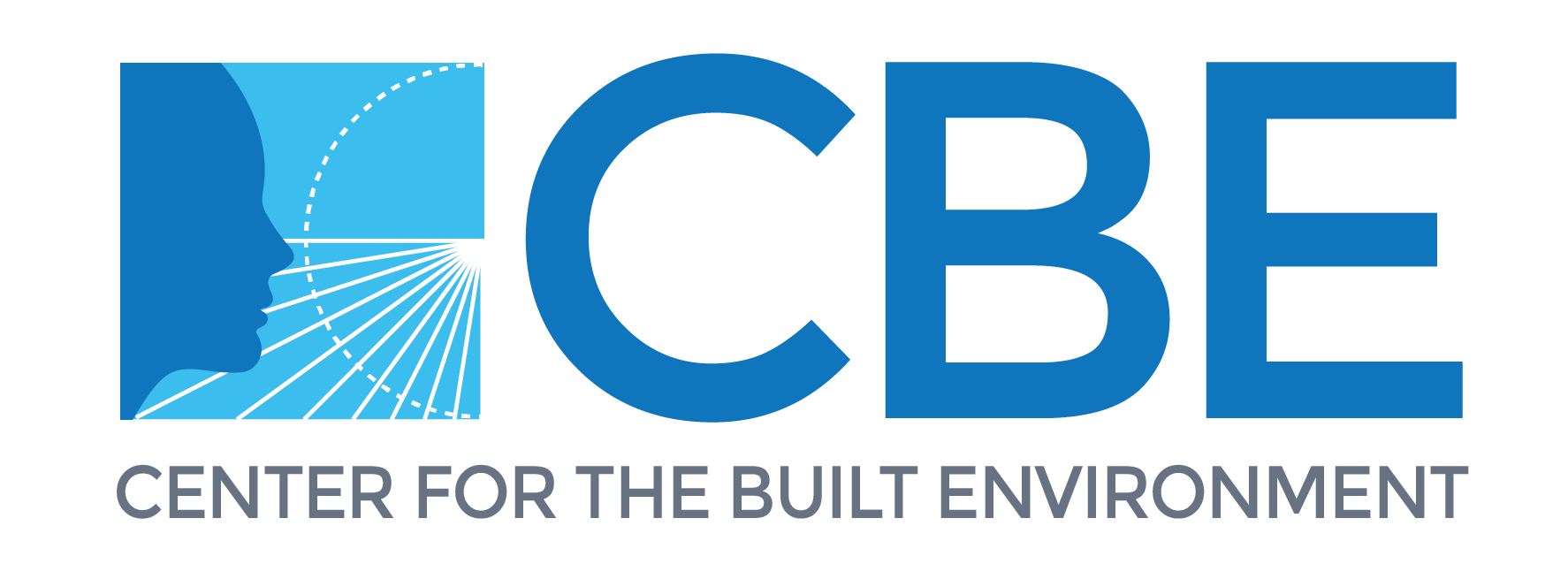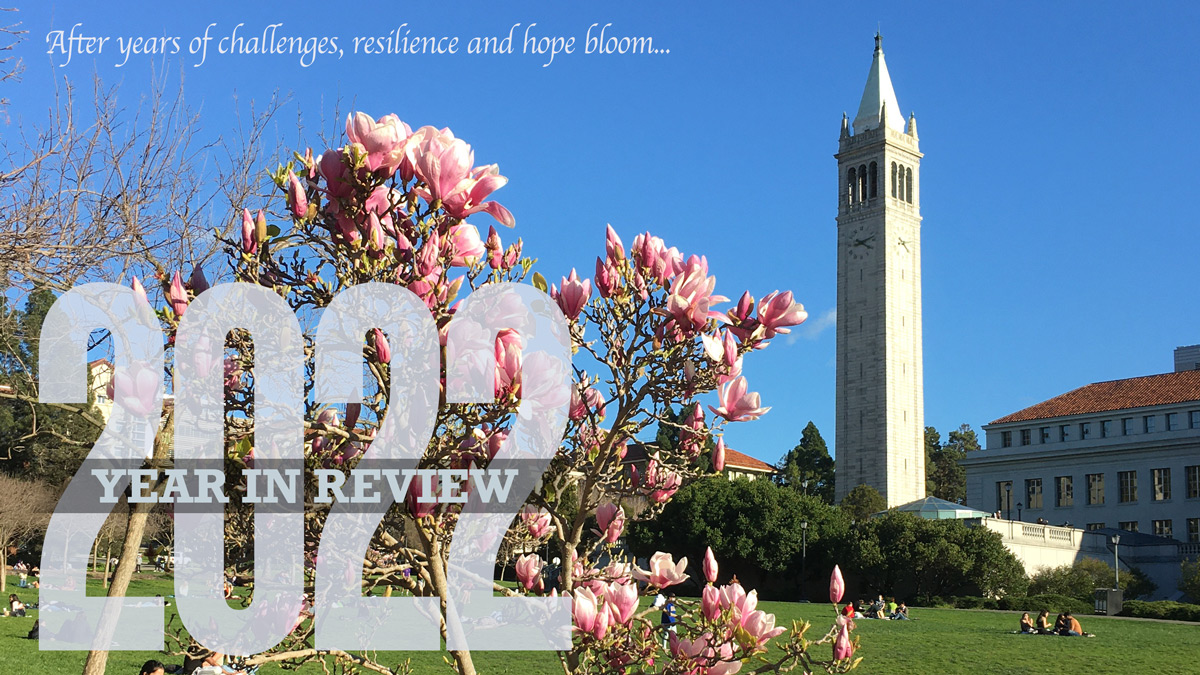As we reflect on the events of 2022, we are encouraged by the return to normal that is underway, as the most challenging aspects of Covid-19 recede. Here at CBE, we are again having our weekly meetings and lunch talks in the office (though still with people via Zoom, as working-from-home flexibility is here to stay). We held two Industry Advisory Board meetings with in-person and virtual options, and we enjoyed reconnecting with our colleagues, collaborators and supporters. This year also celebrated new industry partners, new hires, and the launch of several exciting research tracks.
We were also happy to witness hopeful developments in terms of funding and policy. The largest climate bill in US history, the Inflation Reduction Act commits $369 billion to energy and climate over the next 10 years, with support for renewable electricity, clean transportation and efficient buildings (it is also expected to reduce the deficit by $300 billion.) A $1 trillion infrastructure bill will provide federal funding to states and local governments to upgrade roads, bridges, transit systems and more, including funding for rail, transit and electric vehicle charging. Finally, the State of California has allocated $100 million to the University of California to invest in research that will have a swift and measurable impact on climate resilience. CBE’s research team is currently working on several concepts we will propose, and we will provide updates in the spring.
Over the year CBE’s research team welcomed new and returning partners and funding organizations. New partners include Azbil, a provider of building and industry automation solutions, with an energy services (ESCO) division in Japan and a research branch in Silicon Valley. We had the return of Price Industries, a global leader in supplying air distribution, controls, and noise control products. We were also joined by NBBJ, an architecture and design firm with a dozen offices in North America, Europe and Asia. New to CBE this year is the ClimateWorks Foundation, a team of researchers, facilitators, strategists, and grantmakers who aim to end the climate crisis through philanthropy.
We are also excited to introduce new talent this year, expanding our scope and capabilities with three new postdoctoral researchers. Federico Dallo is developing a software tool for smart thermostats to improve the air quality in homes during wildfires. Fiona Greer has started initial work on embodied carbon. Akihisa (Aki) Nomoto is supporting CBE’s work applying thermal infrared technology to create innovative HVAC controls. In addition, Allison Herbert joined CBE as our research program coordinator, and she is managing our events, operations and membership services. Sadly, we mourned the passing of our dear friend and colleague, Tom Webster. Since joining our research team in 1997, the year CBE was founded, Tom led many of CBE’s core research efforts and remained an important contributor and mentor until his retirement in 2012.
In terms of our research undertakings, we are pleased with the progress our researchers and graduate students have made this year, which we presented to our Industry Advisory Board in spring and fall events. Below we provide a few examples of CBE’s broad range of research projects, with several new directions, and also building on core programs.
Smart Thermostat Innovation to Improve Air Quality During Wildfires: Extreme wildfire events create unhealthy levels of fine particulate matter air pollution, one of the greatest environmental risk factors for human health and mortality. As we wrote recently, researchers at CBE are testing a new low-cost software solution to improve the air quality inside homes when the outside air becomes unhealthy due to wildfires or other sources. This concept takes advantage of Internet-connected ‘smart’ thermostats coupled with outdoor air quality data.
Creating an Affordable Multi-Family Housing Prototype for California: CBE is part of a team led by the Alliance for Energy Affordability and David Baker Architects to receive funding through the California Energy Commission to create the next generation of mixed-use buildings, using an apartment development in San Jose as a design-build prototype.
New Research Program to Focus on Embodied Carbon: The ClimateWorks Foundation is providing generous support for CBE to launch a new research track on embodied carbon in buildings and infrastructure, critical work that can inform design and construction practices, and policies to enable rapid decarbonization of the built environment. We will do this work in collaboration with the Carbon Leadership Forum.
Performance of Ceiling Fans Integrated with Thermally Massive Radiant Systems: CBE began a study in collaboration with CBE partner Clark Pacific, related to their precast structural system that integrates fans and radiant tubing in an effort to create an off-the-shelf high-performance building platform. We will investigate the effect of air movement from ceiling fans on the performance of thermally activated building (TABS) radiant systems.
New Capability for CBE Thermal Comfort Tool for the Use of Fans During Extreme Heat Events: In April we demonstrated a new online tool for evaluating the use of fans to during extreme heat events, which has been incorporated into the CBE Thermal Comfort Tool. The tool was based on recent studies done in collaboration with Ollie Jay and Federico Tartarini, key CBE collaborators at the University of Sydney.
While these are just a few highlights from 2022, our overall scope of work remains robust and driven to a large degree to the guidance of CBE’s Industry Partners. As we wrap up the year, we feel gratitude for their support, and for our community of research affiliates and friends who have again contributed to our successes. Thanks to all and Happy Holidays!

